What is White tea? Health benefits of White tea and where to buy it
“While there is tea, there is hope”
— Arthur Wing Pinero, Sweet Lavender
The simplest pleasures of life are often overlooked. There are few minutes in a day when the time stands still, and I dedicate those to a ceremony known as afternoon tea. I slow down and take my time to enjoy and relax with a cup of white tea. There is something in the inherent nature of white tea which leads me into the world of tranquil contemplation of life. These few minutes of sipping tea restore the serenity in my life, away from my work, chores, and the endless routine.
Contents
What is White tea?
Many might wonder, what exactly is white tea? The purest and most highly valued of tea types, White Tea comes from the same plant as almost every tea savoured comes from, a specific species of plant known as the Camellia Sinensis, an evergreen bush indigenous to tropical countries. Even though there are hundreds of cultivars and hybrids evolved from the plant, ultimately the variety of tea plant and how the plant’s leaves are processed defines the final type of tea that ends in your teacup. Made from harvested immature buds that are still covered by fine white hairs, thus the name “white” tea. These buds and unfurled leaves from the newest growth on the tea plant are handpicked for production. The nub of the process is oxidation, that is, how long tea leaves are allowed to be exposed to oxygen once they’ve been harvested. Throughout the process, tea makers use numerous different methods to create and control oxidation, including rolling, shaping, or crushing the leaves to expedite oxidation, and steaming, firing, or roasting the leaves to stop it. White tea is gently hand-rolled before firing, so it is minimally oxidized, and the least processed. Instead of being exposed to artificial heat, sometimes the leaves are simply allowed to wither and dry in a carefully controlled environment, resulting in the most delicate, fresh-from-the-garden tasting tea.
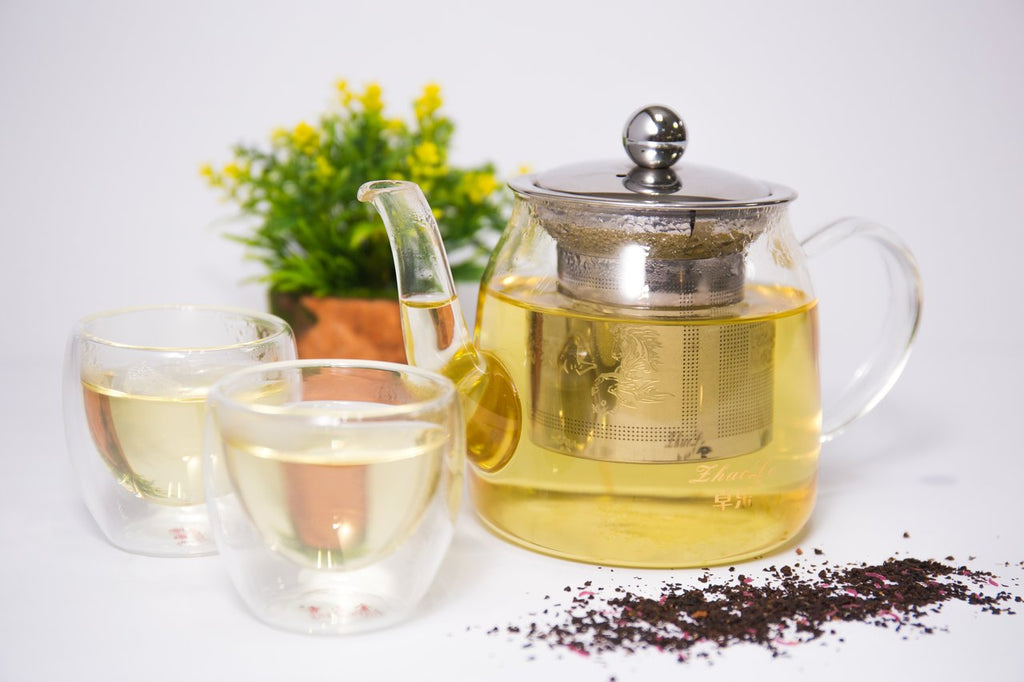
White tea leaves
The white tea beverage itself is not white but instead has a tint of pale yellow. It is milder in flavour compared to black tea and green tea. The light taste entails that you will often find this tea comes in floral and fruity blends. Some of the fruits and floral ingredients such as apricot, honeydew, rose, and lavender is immensely appreciated by tea drinkers. This peculiar taste makes it a great pairing with a range of foods, as your tea and dessert will not be competing with one another! Just combine your tea with cucumber sandwiches and few decadent scones, and you will be throwing a fancier tea party than Mad Hatter! You do not have to be the Alice in Wonderland to appreciate a good tea party!
Health benefits of White tea
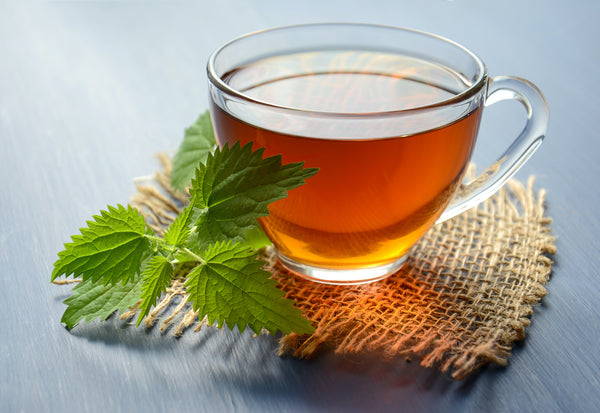
The utility value of tea, the health benefits of tea, and bioactive compounds in tea, as essential elements in a healthy lifestyle, is best explained by the first line in Kakuzo Okakura’s 1906 philosophical treatise on tea, The Book of Tea. Okakura encapsulates the historical and ancient belief in tea as more than just a pleasing beverage by writing, "Tea began as a medicine and grew into a beverage. White tea is not only great in taste but also packs a punch when it comes to health benefits. It is the new contender in the healthy beverages list, and it is not “fluff” entry. As a white tea aficionado, I consider it my duty to spread the word about the benefits and why should one make it part of their daily life.
Cancer preventative properties
As the tea leaves for white tea are barely processes, it retains a high amount of its polyphenols, especially Catechins, the powerful anti-oxidant that fights and kills cancer-causing cells, than any other type of tea. Total polyphenols range between 10.60–25.95 g per 100 g in white tea and between 13.7–24.7 g per 100 g in green tea. Catechins are natural antioxidants that help protect against cell damage caused by free radicals at the level of proteins, lipids, and DNA. Diseases such as cancer or cardiovascular disorders are thought to be produced or aggravated by free radicals. Catechins in white tea can reduce the formation of free radicals in the body, protecting cells and molecules from damage. A study by Oregon State University researchers showed that white tea may have the strongest potential to fight cancer, amongst all other teas. Another study published by Cancer Prevention Research shows that white tea possesses higher Antimutagenic potency than green tea and it is effective in modulating mechanisms associated with lung cancer.
Memory booster

Nobody desires to have a memory like a sieve! A person with a trait of forgetfulness is often considered inattentive, sloppy, and distracted. A good memory power depends on the vigour and energy of the brain. It is wise to say that we need to make sure our brain is well functioning to have a retentive memory. White tea contains polyphenols such as manganese, zinc, and selenium which improve memory and concentration while reducing brain fatigue.
Glowing skin au naturel
“It helps in maintaining healthy skin and gives you that glow you’ve always wanted,” says Dr. Bindu Sthalekar, Dermatologist. In addition, as the outermost protective barrier of the body, the skin is exposed to numerous exogenous sources of environmental oxidative stress and by external insults, such as UV radiation. UV rays cause a number of deleterious effects on human skin including sunburn, immune suppression, and skin cancer. White tea may also protect against skin cancer, says a researcher at the University Hospitals of Cleveland and Case Western Reserve University. In preliminary tests, white tea extracts applied topically to human volunteers showed the ability to protect skin cells from the damaging effects of sunlight. The antioxidants repair cells all over the body, which can have an incredibly positive effect on your immune system and your organs, including our largest organ, skin.
Protect your teeth
White tea is a great source of fluoride, Catechins, and tannins. This combination of molecules could help strengthen teeth by fighting bacteria and sugar. Fluoride can help prevent dental cavities by making the surface of teeth more resistant to acid attacks by bacteria in combination with sugar. Catechins are plant antioxidants that are abundant in white tea. They have been shown to inhibit the growth of plaque bacteria Tannins are another type of polyphenol in white tea. An article published in Dental Research Journal shows that the combination of tannins and fluoride could also inhibit the growth of plaque-causing bacteria.
Strengthening bones
Osteoporosis causes bones to become weak and brittle — so brittle that a fall or even mild stresses such as bending over, or coughing can cause a fracture. Using National Health and Nutrition Examination Survey data, the researchers estimated an 11.0% osteoporosis prevalence for adults aged 50 years or older overall, a 16.5% prevalence in women, and a 5.1% prevalence in men as assessed by femoral neck and lumbar spine bone mineral density. Studies have shown that polyphenols in white tea fend off free radicals that lead to oxidative stress. Oxidative stress is linked to increased risk of bone loss and bone fractures. White tea contains significant levels of antioxidants, which are a powerful weapon in your fight against osteoporosis. Antioxidants prevent oxidative damage to bone, thus staving off the effects of ageing and helping rejuvenate bone.
Lose fat
Obesity is not just an issue of girth control but a growing concern in the United States. It is enlisted as a chronic disease by the American Medical Association. It is not just a weight problem, it can have serious effects on one’s physical, metabolic, and psychological health. From 1999–2000 through 2017–2018, the prevalence of obesity increased from 30.5% to 42.4%, and the prevalence of severe obesity increased from 4.7% to 9.2%. According to the findings of series of experiments published by German researchers in the journal Nutrition and Metabolism on human fat cells, extracts of white tea obstructed the formation of new fat cells by decreasing gene expression and helping existing cells break down the fat they contain. A review of studies also suggests that white tea may help boost metabolism in humans by an extra 4–5%. This may be equal to burning an extra 70–100 calories per day. So, sip a cup or two every day if you want to slim down!
Stress reliever
Considering the gloomy time, we all are going through, this one was music to my ears. White tea is highly valued for its organoleptic characteristics, as it provides an infusion with a soft and aromatic flavour and with floral and fruit notes. It has been found to reduce the amount of cortisol, the stress hormones, in your body by almost 50 per cent within an hour of drinking it, which also goes to say that it can decrease the risk of heart attacks. While black and green tea contains fair amounts of caffeine, white tea contains far less caffeine due to its minimal processing. For those sensitive to caffeine when it comes to sleep, rest assured, the quantity in white tea will not affect your sleep and rather, the warm, soothing tea will help you fall asleep like a baby. Another astonishing fact is that white tea is an antidepressant as it has EGCG (Epigallocatechin Gallate), which has the ability to decrease depression by 44%! So, keep the stress at bay in an entirely natural and healthy way.
Where to buy White tea?
White tea definitely is a winner in the tea category and beats coffee also (we all know what high content of caffeine does to body!). Switching to white tea would not only be a phenomenal experience but a life changer. Now that you are acquainted with all the benefits you will get from a cup of white tea; you can shorten your search process by trying out these teas of extraordinary quality.
Ceylon Ivory
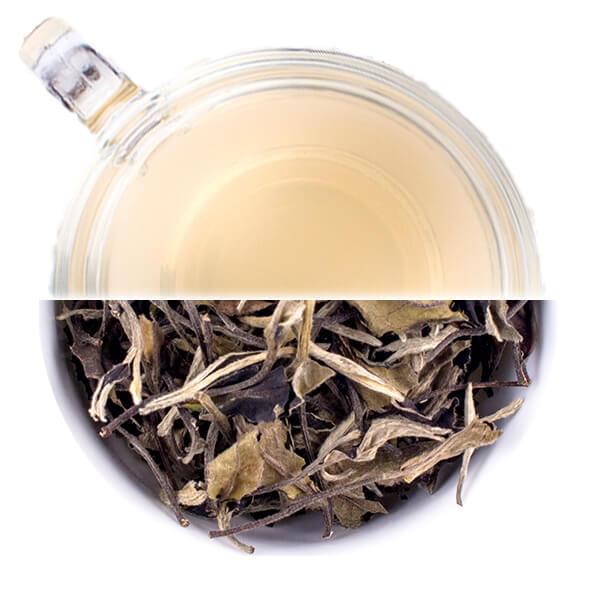
teakruthi’s Ceylon Ivory loose-leaf tea comes from the Ruhuna region in Sri Lanka. For those who like fresh, subtle, and nutty flavour, Ceylon Ivory is a must-try. It has a pale-yellow colour and gives off the aroma of fresh greens and lavender. It does not need sweetening, thus helps in reducing blood sugar levels. People who suffer from high Cholesterol and dull, acne-prone skin are urged to included Ceylon Ivory in their diet.
Ceylon Gold
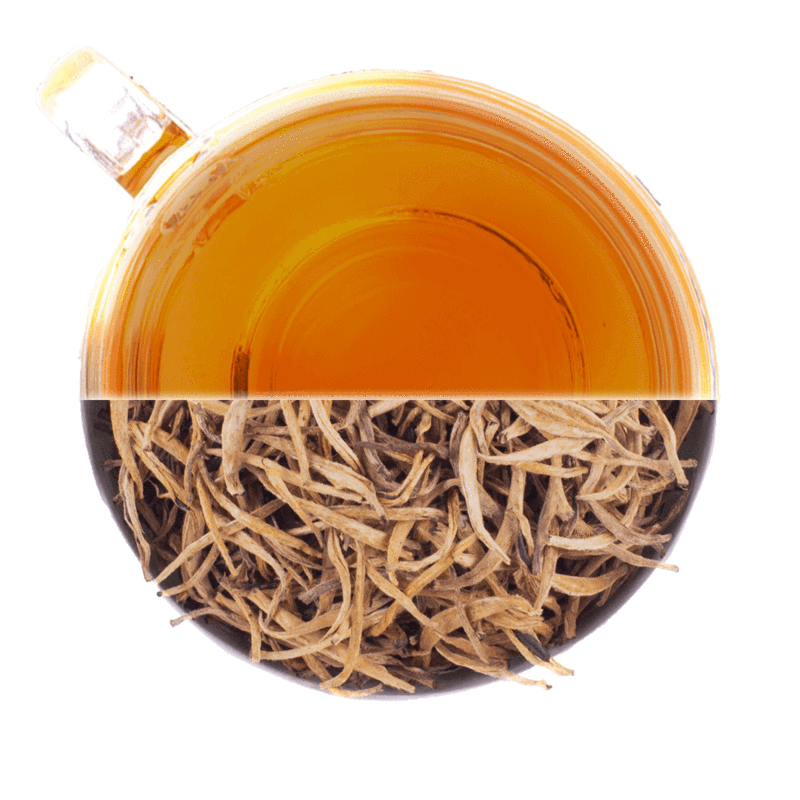
Sourced from the hilly and picturesque region of Nuwara Eliya region, this one gets its name from the special type of ‘Gold Tips’ White Tea, also called as ‘Golden Monkey’. It goes through a unique and diligent process to give it a top-notch flavour. It is harvested from a young tea bush before the buds open up. It is then sundried to allow the tips to retain their velvety golden colour. After the tea leaves are brewed, the beverage looks burnt gold in colour and is fine and tart in flavour. With the aroma of rosewood, this one is perfect for uplifting the mood on a drab day!
Blissful Harmony
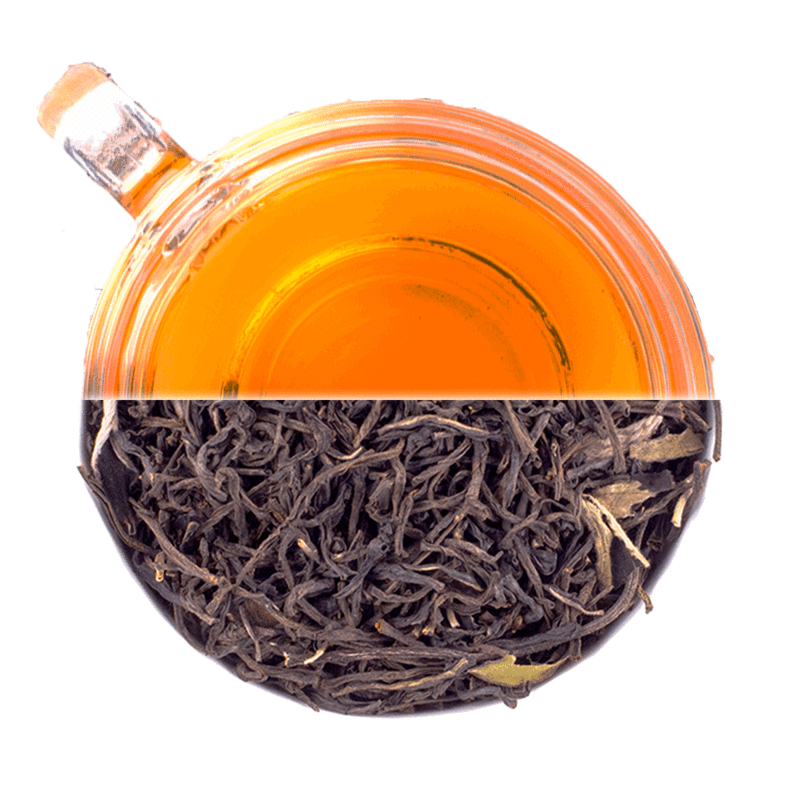
One more tea from the Ruhuna region, Blissful Harmony brings the best of black and white teas together. Those who are new to white tea should definitely start their journey with this one. In this blend, both the teas are combined for unparalleled and contrasting flavours which are not only compatible but harmonizes to give an unforgettable experience to the drinkers. This infusion has a smooth and malty taste with the soft aroma of roasted cashews. It is perfect for any time of day – morning or night!
teakruthi sources all the teas from speciality tea gardens in Sri Lanka committed to natural and sustainable farming practices. All the growers produce non-GMO teas free of artificial preservatives and the use of hazardous pesticides. The teas come in beautiful packaging made of recycled materials (except airtight tea leaf pouch). In addition to being sustainable, teakurthi is making a difference towards social causes. For each dollar spent at teakruthi, they donate towards carbon reduction through carbonfund.org.
Knowing I am making the right choices by selecting teakruthi, the avid tea lover in me is elated. I am off to get my next cup of Ceylon Ivory. Which one of the above is going to be your cup of tea?

References
- Cancer preventive potential of White tea
- White tea extract induces Apoptosis in non–Small cell lung Cancer cells: the role of Peroxisome Proliferator-Activated Receptor-γ and 15-Lipoxygenases
- Osteoporosis remains a costly burden to older US adults
- Obesity is a common, serious, and costly disease https://www.cdc.gov/obesity/data/adult.html
- The book of tea https://www.tug.org/texshowcase/partofTheBookofTea.pdf
- New study shows tea extract protects skin; White tea extract reveals anti-cancer, anti-aging properties
- White tea: A contributor to oral health
- Putative effects of nutritive polyphenols on bone metabolism in vivo—evidence from human studies
- White Tea extract induces lipolytic activity and inhibits adipogenesis in human subcutaneous (pre)-adipocytes
About the author






1 comment
Write a commentSurekha
The aroma of white tea has spread by author worldwide through this article. The way she ‘spilled the tea’ awesome. I